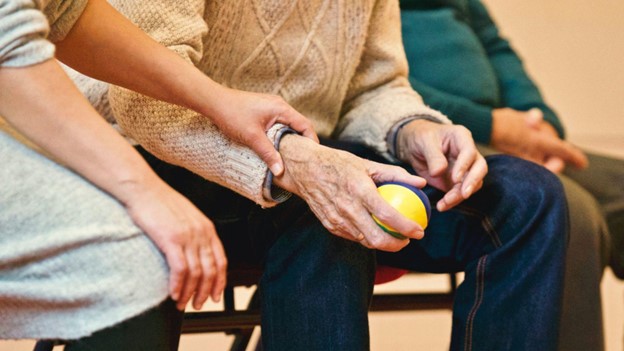brain health
-
Is Diabetes connected to Alzheimer’s Risk?
Recent studies indicate there is a link between Alzheimer's and Diabetes. Did you know that diabetes can have serious effects on your brain health? Here are some important facts to consider: Diabetes and Brain Damage: Diabetes can damage blood vessels in the brain, increasing the risk of strokes and memory loss. Over time, this damage can lead to more severe issues, including dementia and Alzheimer's disease. High blood sugar levels, if not managed, can cause significant harm to the brain’s blood vessels, leading to cognitive decline and vascular dementia(CDC www.heart.org ). Shared Risk Factors: Diabetes is closely linked to other conditions like high blood pressure, high cholesterol, and obesity. These cardiovascular…
-
Taking Care of Your Brain Health 💡🧠
Taking care of your brain health is just as crucial as maintaining physical wellness. By incorporating a few simple habits into your daily routine, you can keep your mind sharp, enhance cognitive function, and protect against cognitive decline. Essential Tips for Optimal Brain Health: Eat a Brain-Boosting Diet : Incorporate a balanced diet rich in fruits, vegetables, whole grains, and lean proteins. Foods high in Omega-3 fatty acids, like salmon, are particularly beneficial for cognitive function and brain health. Stay Physically Active : Engage in regular physical activity to increase blood flow to the brain and support neuron health. Aim for at least 30 minutes of exercise most days to…
-
How a Healthy Diet Affects Brain Health 🌟
Did you know that your diet plays a crucial role in maintaining and enhancing brain health? Research has consistently shown that a well-balanced diet, rich in fruits, vegetables, whole grains, and lean proteins, can significantly boost cognitive function and protect against cognitive decline. Key Nutrients for Optimal Brain Health: Omega-3 Fatty Acids : Found in fatty fish like salmon, Omega-3s are essential for supporting neuron health, enhancing memory, and improving overall brain function. Antioxidant-Rich Foods : Berries, leafy greens, and other antioxidant-rich foods help reduce inflammation and oxidative stress—two factors closely linked to aging and neurodegenerative diseases. Vitamin E from Nuts and Seeds : Incorporating nuts and seeds into your…
-
Discover Effective Stress-Reduction Techniques 🌿✨
Are you feeling overwhelmed by the demands of daily life? Stress can quickly take a toll on your mental and physical well-being, but effective stress-reduction techniques can help you regain control and find balance. Here are some powerful methods to reduce stress and improve your overall health: Mindful Meditation : Incorporate mindful meditation into your daily routine. Spending just a few minutes focusing on your breath can significantly reduce anxiety and promote a sense of calm. Regular mindfulness practice has been shown to enhance mental clarity and emotional resilience. Deep Breathing Exercises : Engage in deep breathing exercises to instantly calm your mind and body. Try inhaling slowly through your…
-
How to Stay Healthy as a Caregiver
Caring for a loved one is a rewarding experience, but it can also be physically and emotionally demanding. While you’re focused on their well-being, it’s crucial not to neglect your own health. To prevent illness and caregiver burnout, follow these essential tips to reduce stress and maintain your physical and mental well-being. Brought to you by The Purple Vine, your trusted source for caregiver support. 1. Limit Caffeine and Sugar for Better Sleep As a caregiver, getting enough rest is vital. Lack of sleep can increase stress and weaken your immune system. To improve your sleep quality, limit caffeine and sugar intake, especially in the afternoon. Avoid these stimulants after…
-
Just One Thing
How would our lives improve if we changed just one thing this week? Changing just any old thing may not have any impact, for example, putting on your shirt before your pants, if that's your habit. That won't cause any ripple effects, mood enhancements, or much else, as far as I'm concerned. But what if the ONE THING we focussed on was literally where we put our focus? Bear with me; it will make sense in just a minute. Have you ever found yourself dwelling on those who don't support you? The spouse, partner, sibling, relative, or friend who never seems to have time to help you?Have you noticed yourself…
-
10 Ways to Reduce Caregiver Stress: Free Guide & Tips for a Balanced Life
1) Take breaks: It's crucial for caregivers to schedule regular breaks to rest and recharge. Even short breaks can help alleviate stress and prevent burnout. 2) Seek support: Don't hesitate to reach out to family members, friends, or support groups who can provide emotional support and share in the caregiving responsibilities. 3) Prioritize self-care: Make self-care a priority by engaging in activities you enjoy. This could include hobbies, exercise, meditation, or simply taking time for yourself. For me, it's gardening. That is a happy, peaceful place where I can relax. 4) Accept help: Allow others to lend a hand. Accept help with caregiving tasks, such as meal preparation, errands, or…
-
Anxiety Calming Strategies
We all have a certain amount of anxiety. Learning how to handle it is what’s crucial. Caregivers have a higher-than-normal amount of stress due to their circumstances, so it’s doubly important for them to learn coping techniques. You’ll find other stress-relieving articles here and here. According to the Anxiety and Depression Association of America, over 18% of Americans struggle with some form of anxiety at any given time. Coping with anxiety can be complicated, especially since no single treatment works for everyone. So, let’s talk about five completely natural ways that you can calm your anxiety today. 1. Meditation & Deep Breathing Anxiety attacks and persistent anxiety typically come…
-
Finding Time to Relax: Stress Relief and Self-Care Tips for Caregivers
What goes through your mind when someone says "you just need to relax"? If you're like most caregivers, that suggestion might not calm you down. In fact, it might stress you out even more! While the sentiment is well-meaning, it’s often not helpful. We all know that stress is harmful, especially when it’s prolonged, and caregiving naturally comes with a lot of stress. But realistically, what can we do to unwind? We can’t simply run away from our responsibilities, nor can we ignore them and hope things will work out. So, what are some practical ways to find relaxation? Practical Tips to Help You Relax 1. Read a Book: Even…
-
Why Do People Journal? Uncover the Surprising Benefits of Daily Writing
Have you ever heard people talk about journaling and wondered why they do it? Is it really beneficial, or just another task to add to your already full day? How can it possibly help? I used to think the same way! With a job, family, and caregiving responsibilities, I felt like I was barely keeping my head above water. The idea of adding journaling to my routine seemed overwhelming. But before you dismiss the idea, I invite you to consider the potential benefits of journaling. I’m not asking you to commit to anything—just to ponder whether this practice could offer you some relief and insight. If you decide to give…








